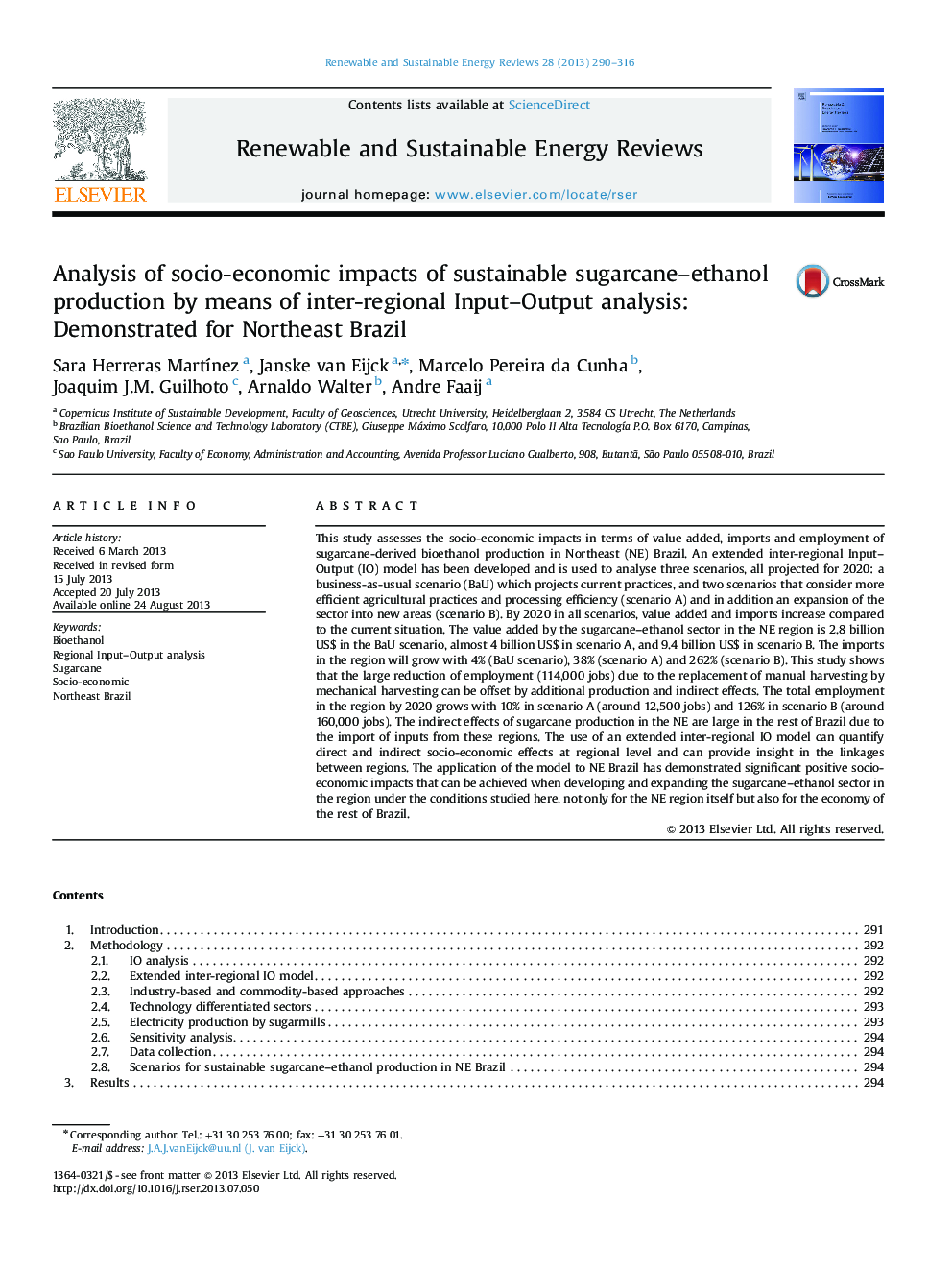| Article ID | Journal | Published Year | Pages | File Type |
|---|---|---|---|---|
| 8121000 | Renewable and Sustainable Energy Reviews | 2013 | 27 Pages |
Abstract
This study assesses the socio-economic impacts in terms of value added, imports and employment of sugarcane-derived bioethanol production in Northeast (NE) Brazil. An extended inter-regional Input-Output (IO) model has been developed and is used to analyse three scenarios, all projected for 2020: a business-as-usual scenario (BaU) which projects current practices, and two scenarios that consider more efficient agricultural practices and processing efficiency (scenario A) and in addition an expansion of the sector into new areas (scenario B). By 2020 in all scenarios, value added and imports increase compared to the current situation. The value added by the sugarcane-ethanol sector in the NE region is 2.8 billion US$ in the BaU scenario, almost 4 billion US$ in scenario A, and 9.4 billion US$ in scenario B. The imports in the region will grow with 4% (BaU scenario), 38% (scenario A) and 262% (scenario B). This study shows that the large reduction of employment (114,000 jobs) due to the replacement of manual harvesting by mechanical harvesting can be offset by additional production and indirect effects. The total employment in the region by 2020 grows with 10% in scenario A (around 12,500 jobs) and 126% in scenario B (around 160,000 jobs). The indirect effects of sugarcane production in the NE are large in the rest of Brazil due to the import of inputs from these regions. The use of an extended inter-regional IO model can quantify direct and indirect socio-economic effects at regional level and can provide insight in the linkages between regions. The application of the model to NE Brazil has demonstrated significant positive socio-economic impacts that can be achieved when developing and expanding the sugarcane-ethanol sector in the region under the conditions studied here, not only for the NE region itself but also for the economy of the rest of Brazil.
Related Topics
Physical Sciences and Engineering
Energy
Renewable Energy, Sustainability and the Environment
Authors
Sara Herreras MartÃnez, Janske van Eijck, Marcelo Pereira da Cunha, Joaquim J.M. Guilhoto, Arnaldo Walter, Andre Faaij,
